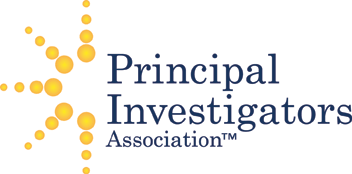.jpg) |
New Release: Risky Business — Strategies for Winning the R21
The NIH Exploratory/Developmental Research Grant Program — dubbed the “R21” — is unlike any other agency grant, with its own unique objectives and strategies for winning the funding. And this uniqueness is reflected in not only the proposal itself, but also your decision to even pursue the grant. |
.jpg) |
New Release: R15 AREA Grants — |
.jpg) |
New Release: The Secrets to Winning K08 & K23 Awards — Get ‘Protected Time’ to Enhance Your Career
If you’re looking for grant funding that will provide money for your research and your salary, while giving you some breathing room to do the work you desire, the NIH’s K08 and K23 awards are definitely worth considering. These grants can offer you the funding you need to get results from your research. |
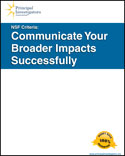 |
NSF Criteria: Communicate Your Broader Impacts Successfully
The concept of “broader impacts” is tricky for most researchers to understand — much less communicate it effectively in their NSF grant proposals. The agency even admits that broader impacts is a tough concept for researchers. |
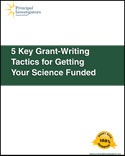 |
5 Key Grant-Writing Tactics for Getting Your Science Funded
You already have a great research idea, and now you just have to get it funded. Writing convincing, compelling and competitive proposals is an indispensable skill for every scientist. With only 1 in 5 grants receiving NIH or NSF awards, you need every available tool to get the grant you deserve. |
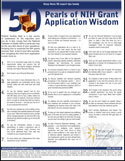 |
50 Pearls of NIH Grant Application Wisdom (Reference Card)
Finally, there is a useful quick-reference card that you can use to complete your grant proposal and help you get more money from the NIH. Keep this convenient card at your desk, and apply these time-tested tips to your NIH grant application. |
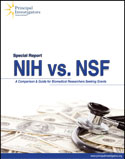 |
NIH vs. NSF: A Comparison & Guide for Biomedical Researchers Seeking Grants
This thorough special report takes a closer look at each of these funding agencies, their missions, size, budgets and scopes of operation, so you can gain a clear understanding of the criteria they use and steps they follow when choosing the projects they fund. |
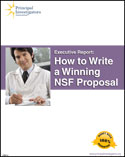 |
How to Write a Winning NSF Proposal
Addressing Intellectual Merit and Broader Impacts in your NSF grant application is the crucial element to drafting not only a proposal that reviewers will view favorably, but also one that the agency won’t return to you without even reviewing it. |
 |
Winning Your NIH Research Grant
In the competitive world of federal funding, getting your research grant into the winner’s circle is getting tougher. This is your chance to get an incredible collection of informative articles to help you better understand - and make the most of - your grant application and award. |
 |
Intellectual Property and Patents
How do you go from a discovery in your laboratory to intellectual property (IP) on a balance sheet? It’s trickier than many would guess. A scientist might assume something isn’t IP when it very well might be, or just the reverse. |
| Prepare a More Competitive MRI Grant Application
The competition is fierce for NSF’s Major Research Instrumentation (MRI) grants. The complex proposal format is significantly different from the standard research grant application, and you need every increment of improvement that you can get. If you don’t address those key differences in your MRI application, your funding request will be shot down before it even gets started. |
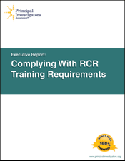 |
Complying With RCR Training Requirements
In an effort to demonstrate their continued commitment to ethics instruction, the NSF and NIH have mandated that institutions develop a plan for Responsible Conduct of Research (RCR) instruction. |
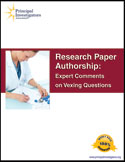 |
Research Paper Authorship
As you consider publishing, when is not nearly as important as why, experts say. You should always publish promptly, of course, and there may be rare extenuating circumstances when you must publish before you feel you’re fully ready. But experts generally agree that the decision on when to get your results into print should be driven by the science — not simply your desire to see your name in the high-end journals as often as possible. |
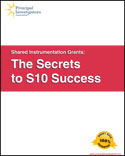 |
Shared Instrumentation Grants: The Secrets to S10 Success
In times of economic hardship, securing the financing for expensive research equipment is vital to your project. This is where NIH’s S10 grants play their most significant role. But if you fail to comply with its specific set of guidelines and requirements, your medical research could suffer serious setbacks — including being put on hold for a year or more! |
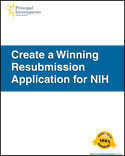 |
Create a Winning Resubmission Application for NIH
The NIH rejects most grant applications the first time around. In fact, the estimated initial rejection rate is 75 percent to 90 percent. Fortunately, most NIH institutes encourage resubmissions, and an estimated 35 percent of resubmitted applications get funded. The trick is revising your application in a way that improves your chances for success. |
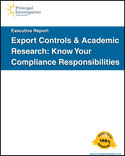 |
Export Controls & Academic Research: Know Your Compliance Responsibilities
Export controls may seem to concern only businesses and shipping firms that send products and technologies overseas. But academic research plays an integral role — and your institution could easily come under fire for violating these laws if you don’t have strict compliance procedures in place. |
